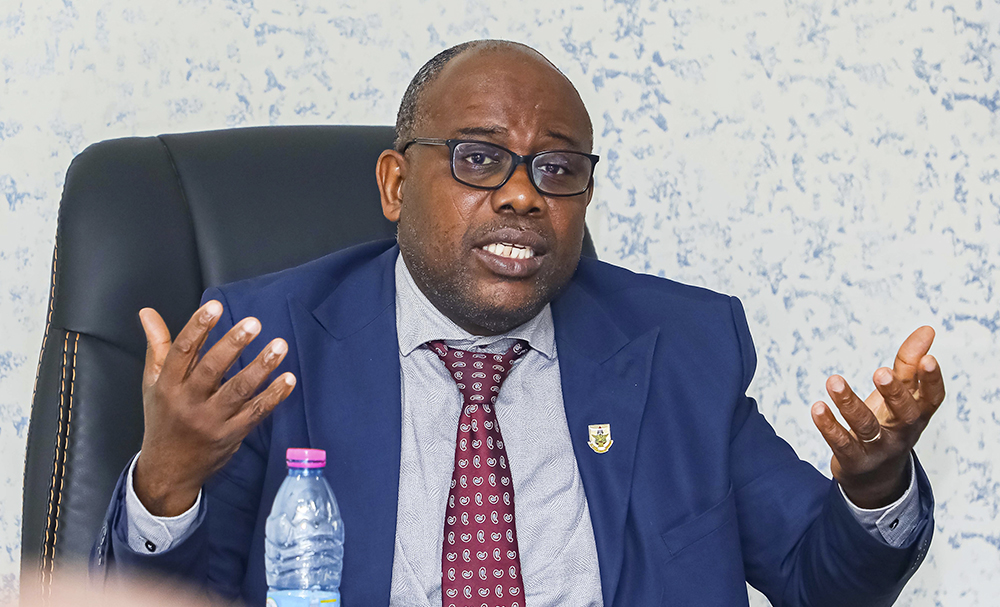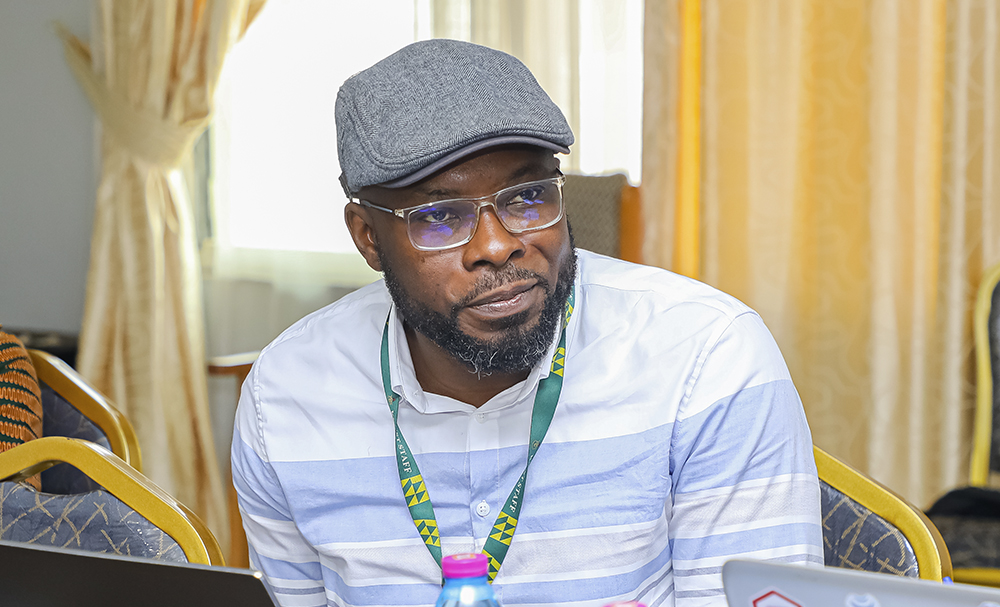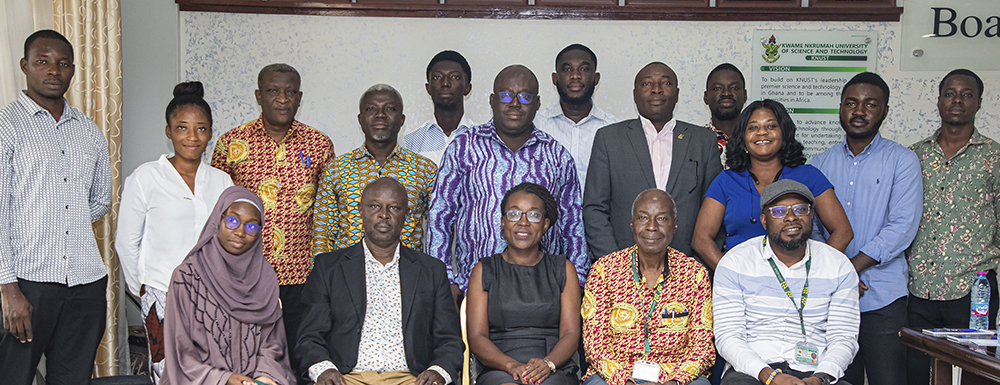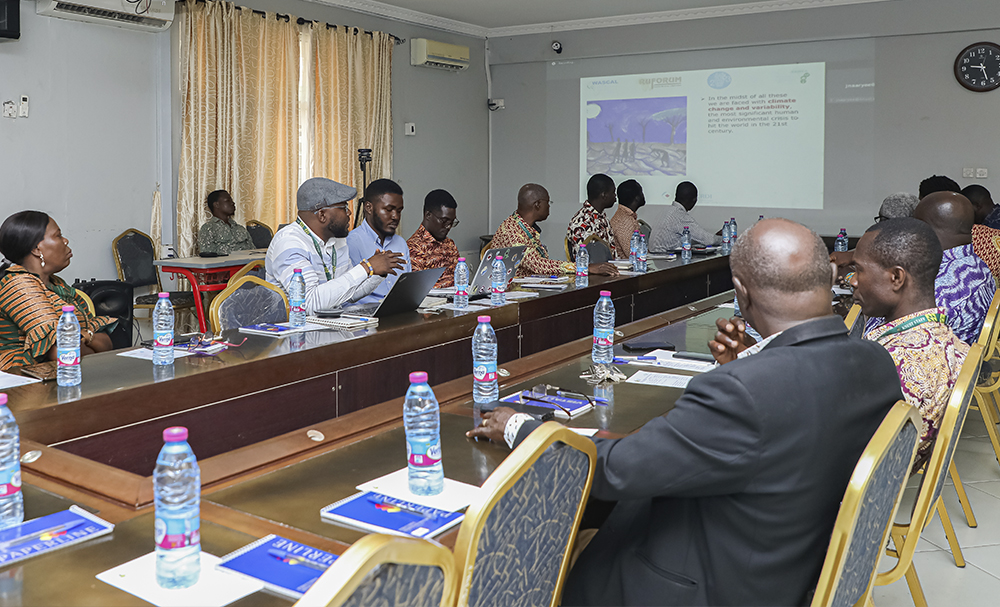The Responsible Assessment of Groundwater Availability (RAGA) Project, at the College of Science (CoS) of the Kwame Nkrumah University of Science and Technology (KNUST), Kumasi has held an Inception Meeting for stakeholders. The RAGA Project is a collaboration between the CoS, the West African Science Service Centre for Climate Change and Adapted Land Use (WASCAL), the Regional Universities Forum for Capacity Building in Agriculture (RUFORUM), the International Development Research Centre and the Responsible Artificial Intelligence for Climate Action in Africa (RAINCA).
The meeting was to afford the stakeholders in water resource management the opportunity to be briefed about the Project and give them the opportunity to offer useful insights and contributions for the implementation of the Project.

The Inception Meeting was chaired by the Provost of the College of Science of KNUST, Professor Leonard K. Amekudzi. In his opening remarks, he stated that the rising effects of climate change take a heavy toll on African countries regarding water resources. He continued that Ghana is no different as most activities will be dependent on groundwater resources in the future. In this light, a project that employs the innovative use of Artificial Intelligence (AI) to predict the availability of groundwater is an important solution to climate change adaptation in Ghana. The Provost further said a system called the Rapid Assessment of Groundwater Availability (RAGA) will be made accessible to groundwater practitioners and the general public at the end of the Project to help the water resources sector. He was hopeful that the Project will go a long way to provide potable water to deprived communities in Ghana. He was grateful to the collaborating partners in the University for their support in winning the grant for the Project.

In his presentation, the Principal Investigator (PI) of the RAGA Project, Dr. Cyril D. Boateng, indicated that Ghana in recent times has seen a rapid rise in the utilisation of groundwater for domestic, agricultural, and industrial purposes. According to studies, over 60% of total requirements are estimated to be provided by groundwater. In addition, illegal artisanal mining is posing a significant threat to freshwater bodies. Dr. Boateng continued that during all these we are faced with climate change and variability, the most significant human and environmental crisis to hit the world in the 21st century. According to him, unreliable water supply systems adversely impact agricultural output thereby affecting sustainable food production and increasing poverty. He also said the disproportionate burden on young girls and women who are often responsible for the traditional roles of water collection, cooking, cleaning, and childcare must be considered. He further said the nonavailability of potable water leads to the use of unsafe water resources contributing to an increase in waterborne diseases such as guinea worm. The PI of the Project further stated that the aim of the Project is to predict groundwater availability in Ghana in the face of climate change and variability. According to him, the Project’s objectives are to build spatio-temporal geophysical, hydrological, climate, and groundwater level (GWL) variables for Ghana. Secondly to develop AI algorithms and workflows for integration of varied data sources and prediction of groundwater availability. In addition, develop a web-based application for rapid groundwater availability assessment to be used by stakeholders and the general populace.
It is expected that at the end of the Project, the capacity of African innovators and researchers would be built. The Project will also help train groundwater practitioners in data gathering and the use of the RAGA system. The Project will also enhance the capacity of researchers in the Departments of Physics, Meteorology and Climate Science, Geological Sciences, and Computer Science, as well as water practitioners in Ghana and also train three master’s students. The RAGA Project is gender inclusive and will address gender disparities by improving access to reliable groundwater sources.
The Project is aligned with the Government of Ghana’s National Water and Sanitation Strategy, National Water Policy, and Ghana Poverty Reduction Strategy which aims to ensure all people living in Ghana have access to adequate, safe, affordable, reliable, and sustainable water services. The RAGA Project will help achieve the Sustainable Development Goals (SDGs) 1, 2, 6 and 13, which are eradicating poverty, ensuring zero hunger, providing clean water and effective sanitation, and taking action to combat climate change and its impacts.

The Meeting was attended by stakeholders from the Water Resources Commission, Council for Scientific and Industrial Research (CSIR), Ghana Institution of Geoscientists, Office of Grants and Research, the Departments of Physics, Meteorology and Climate Science, and Geological Engineering.

















